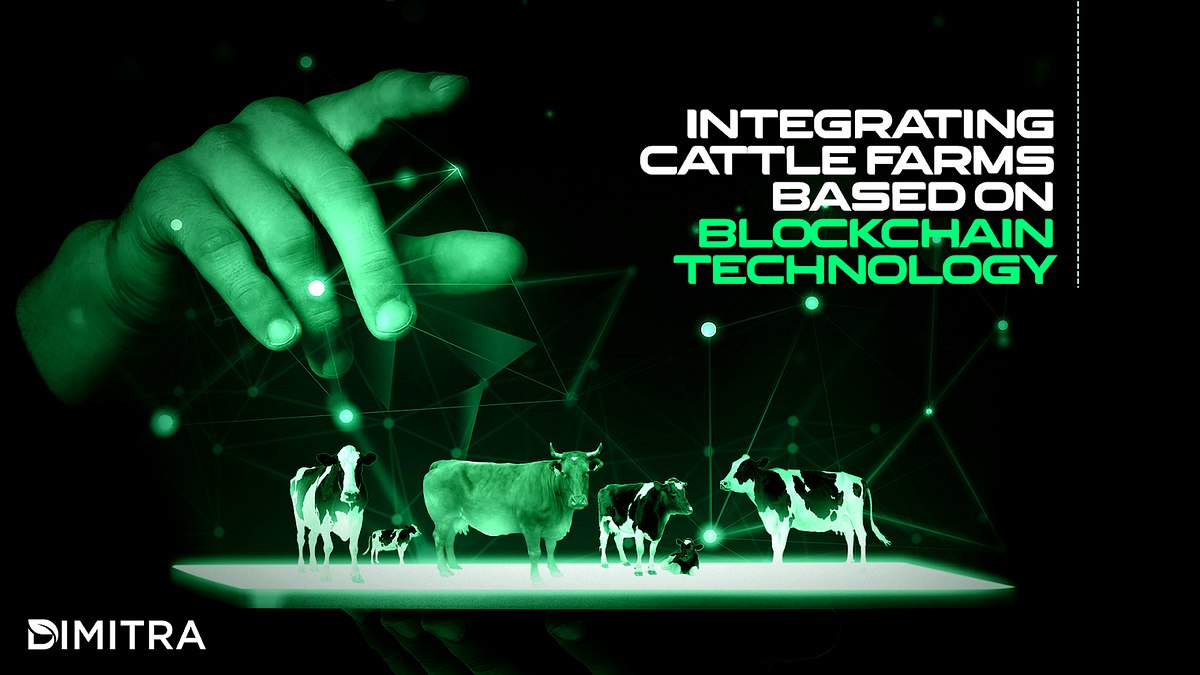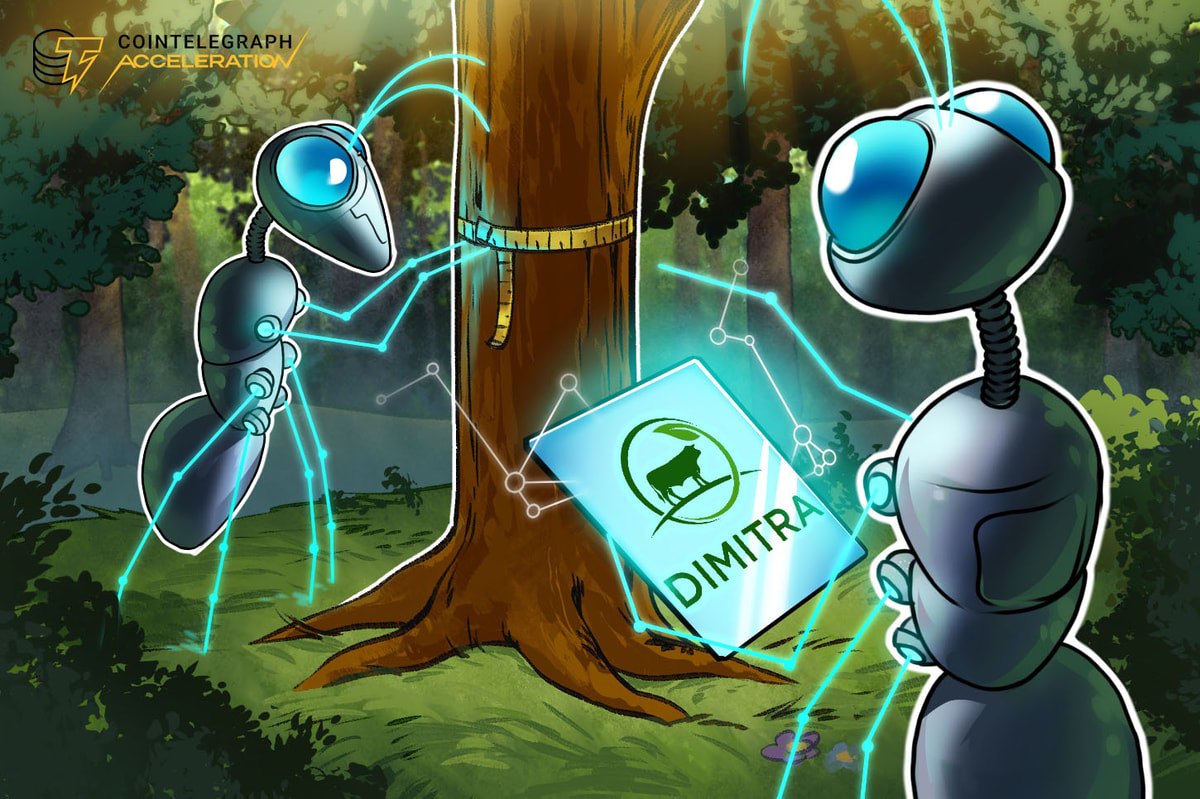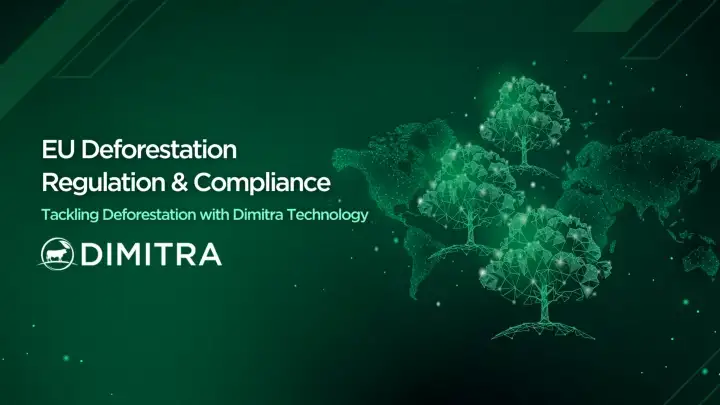Integrating Cattle Farms Based on Blockchain Technology

Dimitra UNJA – Dimitra Incorporated, a global Agtech company on a mission to make its technology available to farmers globally, is collaborating with the University of JAMBI (UNJA). UNJA is a public university located in Jambi City, Jambi, Indonesia. Together with the district government, they have built a traceability-based beef cattle development initiative with the community of oil palm farmers by utilizing blockchain.
Building resilience by diversifying farms – Dimitra UNJA
Consequently, the rejuvenation of palm oil plantations forces farmers to wait up to 2–3 years for their plantations to become productive again. For smallholder farmers, this means no income during the waiting time. Whereas farmers who own an average of 2 hectares of oil palm plantations can usually earn as little as 3 million rupiah (US$200) per week.
Dimitra’s Indonesia Sales Partner, Ricky Tanudibrata, recalls, “Jayus and Trimanto, two village heads in the oil palm plantation area, have encouraged their villagers to diversify their livelihoods by raising cattle. It becomes an additional source of income apart from the oil palm sector. To maximize their hopes as a beef cattle-producing village, the oil palm growers are fully aware that they need training to build capacity and skills in raising cattle. Jayus and Trimanto understand that raising cattle traditionally will not make much difference.”
Dimitra and UNJA combine their wealth of knowledge and expertise in community cattle farming. Together they are conducting an intensive training program to help farmers increase yield, reduce expenses, and mitigate risk. The program will be curated specifically for cattle farms that are integrated with oil palm plantations. Firstly, Dimitra will be supplying the technology. Secondly, UNJA will be conducting the local operation and research. They will work with two villages in Tanjung Jabung Barat regency, namely Purwodadi and Sungai Muluk villages.
The role of utilizing blockchain-based traceability technology
Equally important, by using blockchain traceability technology. Every stage in the beef cattle supply chain can be recorded accurately and transparently. The data generated through this platform can provide the following detailed information:
- The origin of the cow
- Health Condition
- Nutritional Information
- Breeding Practices
- Rearing Practices
Futhermore, with this information at hand, consumers have greater visibility about the products they are buying, including:
- The environmental sustainability
- Animal welfare
- Social responsibility of the farm
In addition, blockchain traceability technology also allows for faster and more efficient tracking of problems or unexpected events. Events such as disease outbreaks or food safety cases. What’s more, data recorded in real-time through this platform allows a fast and precise response. This minimizes the negative impacts that may occur in the beef cattle supply chain. Not only will working towards sustainable data-based cattle farming improve the welfare of oil palm smallholders, but it is also positive for the environment.
The role of utilizing blockchain-based traceability technology will be focused on the following:
- Identification (Location mapping, Soil health, Animals, Plants, Owners)
- Governance (Land, Animals, Cages, Health) and
- Marketing (Distribution, Price/Time/Location, etc)
Beef production in Indonesia – Dimitra UNJA
According to data from the Ministry of Agriculture, Indonesia’s need for beef in 2022 is 736,000 tons (estimated to be more). Domestic beef production in 2022 is 450,000 tonnes. This means that domestic beef production can only meet around 60% of the total beef demand in Indonesia.
It is estimated that by 2050 in order to feed the world, raising food production by 70% will be the only way to keep up. In addition, Indonesia still imports 40% of its meat (beef and buffalo). Repairing and increasing the people’s cattle supply is something that needs to be done. For the time being, the collaboration between Dimitra and the University of JAMBI is focused on just that, enhancing the cattle industry in Indonesia and supporting diversified farming.
The University of JAMBI’s Deputy Rector and Professor, Rayandra Arsyad, says, “Through the collaboration between the Jambi University and Dimitra Inc, I hope that we can realize the integration of cattle farming with oil palm plantations based on information technology. The opportunity is real. We must be able to materialize it in an effort to improve the quality of life and welfare of smallholder cattle breeders in Jambi province.”
Dimitra Incorporated
New Horizon Building, 3-1/2 Miles Philip S.W. Goldson Highway, Belize City
info@dimitra.io

